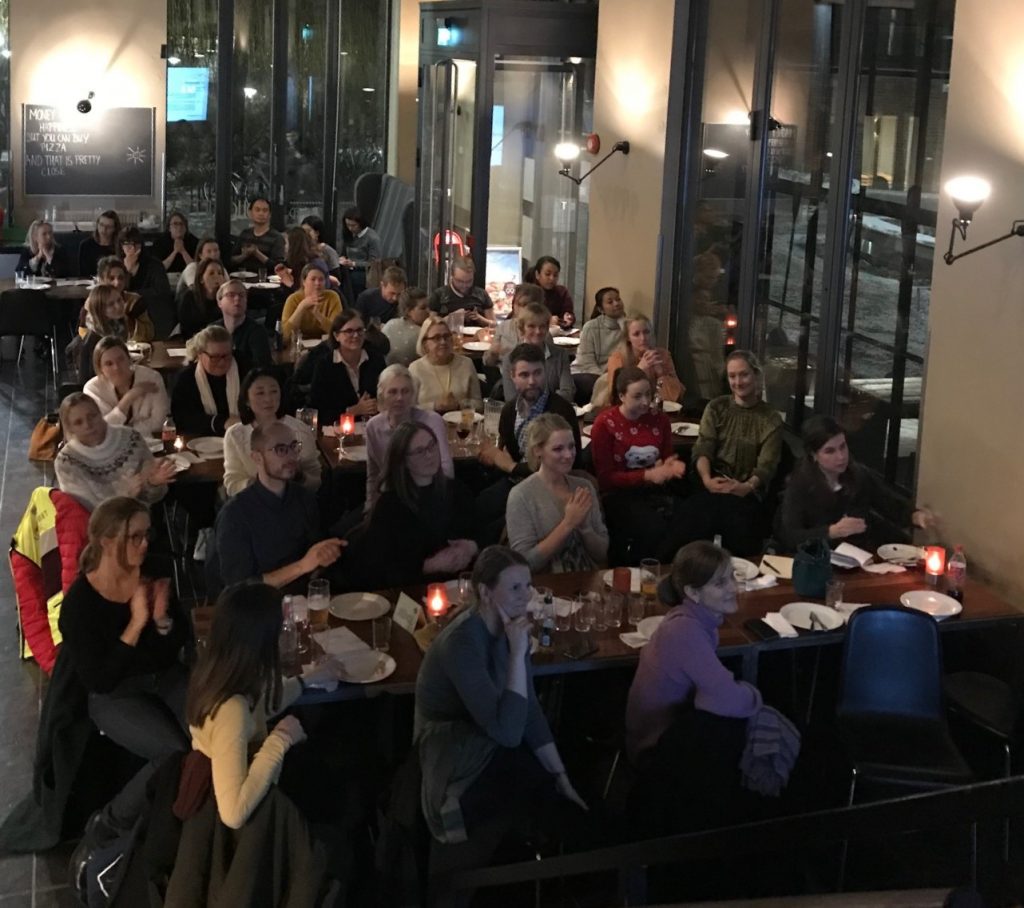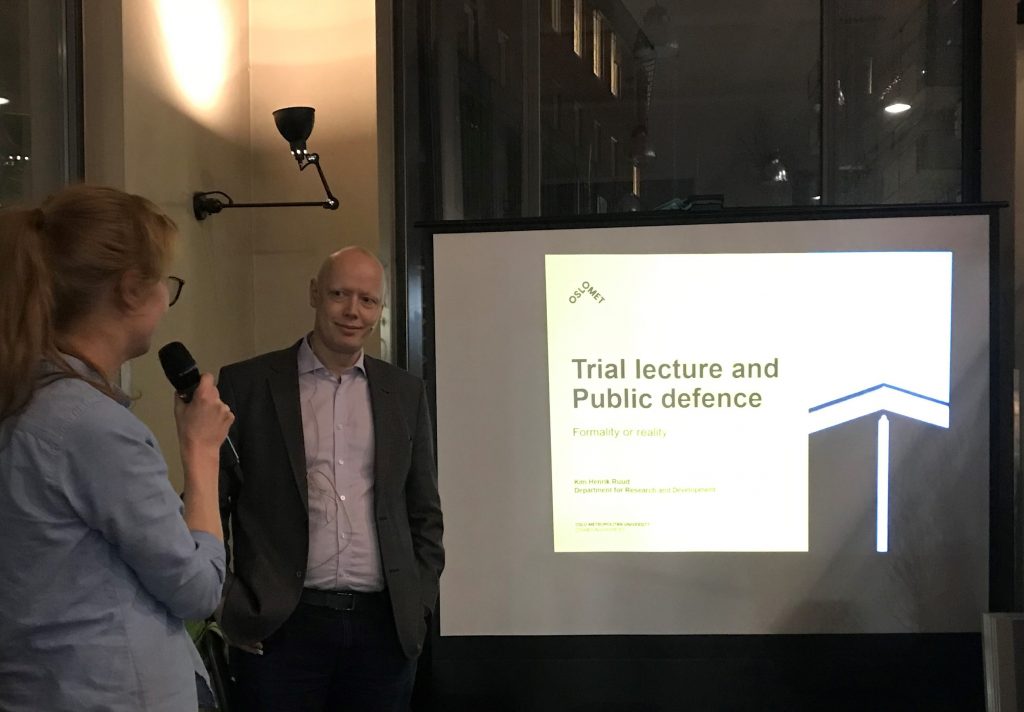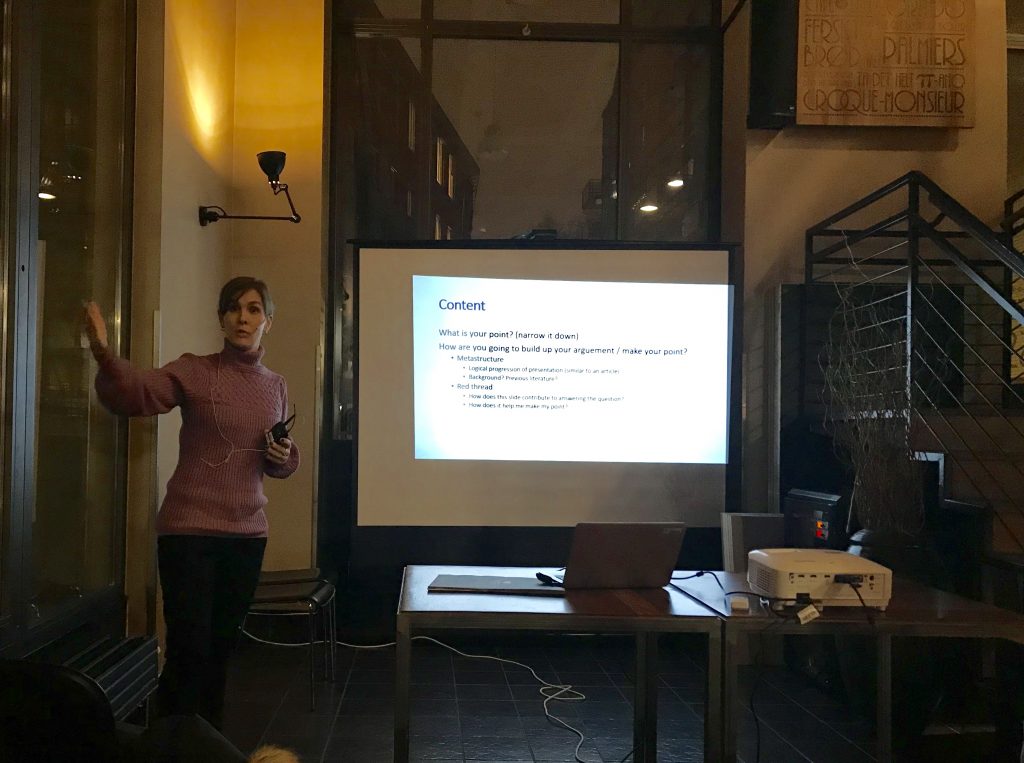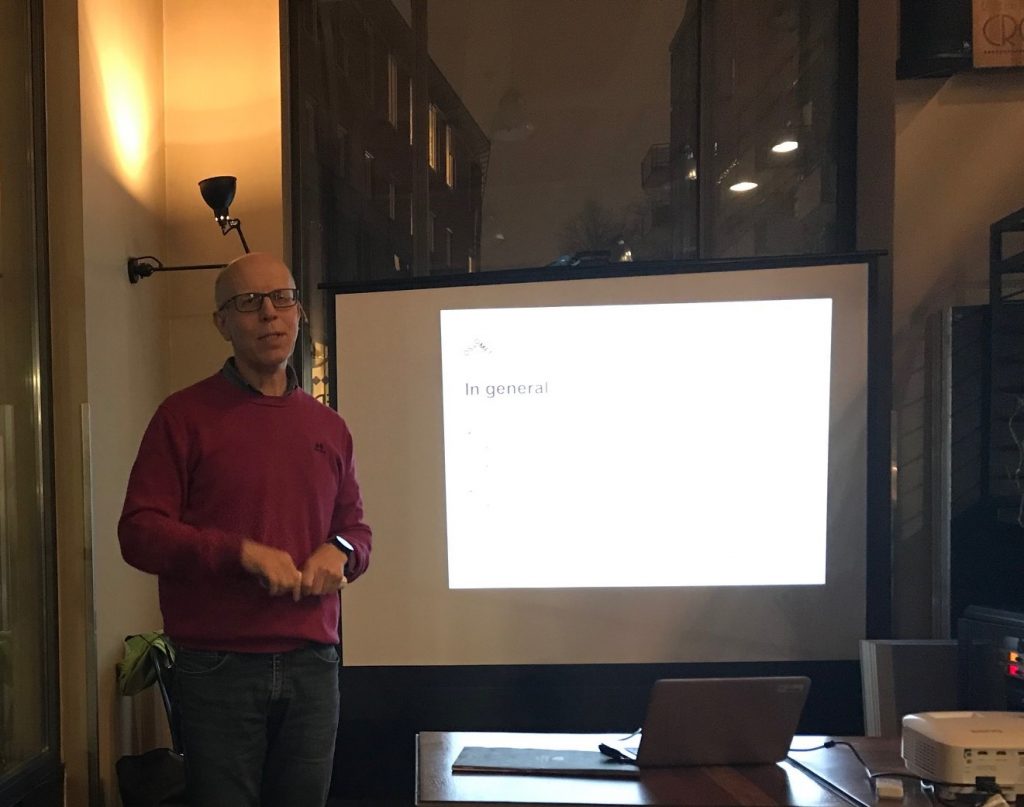Have you heard the about the one student that failed his doctoral examination? Yet, no one really seems to know who this is? The doctoral examination is surrounded by myths. In order to prepare you for the big day, we invited three resources within academia to address our insecurities and share their experiences with the trial lecture and the public defense.

On December 10th, approximately 60 PhD-students gathered to our PhD night on the subject. With the help of Kim Henrik Ruud, Haakon Meyer and Jamie Johnston, we discussed the doctoral examination from an administrative, opponent and candidate’s point of view.
The formal setting
Together, the trial lecture and the public defense constitute the doctoral examination. While both the trial lecture and public defense are subject of approval, our guests assure us that it is the written thesis that is the main test.
While the doctoral examination is regulated by rules, there are differences between the faculties. For example, in some faculties, the committee presents your thesis. However, if you are among those who are expected to present it yourself, it might be wise to make the presentation two to three months before the examination. Be sure to check the regulations at your local PhD program.

Keep also in mind the errata list. You can apply to correct minor formal errors in your thesis, but this must happen no later than four weeks before the committee’s submission deadline. The assessment committee has three months to submit their assessment.
More information on the formal setting in Kim Henriks presentation slides (PDF).
The trial lecture
The main purpose of the trial lecture is to test your abilities to acquire and disseminate knowledge. Remember that the committee already knows your topic. The target group for your trial lecture is hence students, co-workers, family and the informed public. Define things carefully and make it interesting for them. Pictures might be helpful for the visual engagement of an audience.
The assessment committee decides the title of the trial lecture and announces it ten working days ahead of the doctoral examination. Often, the title is related to your thesis, but not directly connected. Upon receiving the title, it is important to find your focus (i.e. is this an overview, nuanced understanding or critical reflection?). Make the presentation meaningful for you and use it to obtain a new perspective of your work. Remember that the trial lecture should be held in the same language as your thesis is written in.

The meta structure of your presentation will help build your argument. Thinking of the logical progression as similar to the structure of an article might be helpful. Reconsider how each slide contributes to your argument.
More information on the trial lecture in Jamies presentation slides (PDF).
The lecture lasts for 45 minutes. It can be a good idea to practice your presentation a couple of times before – to do a trial-trial lecture – nonetheless to ensure that you are able to keep to the timeframe. An extra tip is to add a couple of extra slides in the end, which you can use if you finish early. Before the trial lecture, it might also be wise to check and familiarize yourself with the technical equipment.
The public defense
Prepare for the public defense by looking at the assessment you have received with your supervisor. Some questions are common during the defense, which means that you can prepare an answer in advance. One example is: “what are your key contributions?”

Often, the defense takes the form of a conversation. Do not be afraid to ask questions back during to your opponent, but avoid too simple answers or hogging the stage. The point of the defense is after all to have a good debate. If you struggle with one or two questions, our experienced opponent finds it acceptable to answer “Good question. I do not have an answer right now, but I will consider it.”
The public defense lasts between two and four hours. When the opponents are satisfied, the defense is usually approved. This varies a little from program to program. The committee will sometimes gather after the defense, deliberate for a little while and then approve the defense.
The doctoral dinner
While it is tradition that the candidate invites the committee, chair, family and friends to a doctoral dinner, the dinner is not mandatory. In order to use your energy wisely before the doctoral examination, one tip is to let someone else organize the dinner, such as your family. Keep also in mind that some of the expenses for the dinner is eligible for a tax deduction.
We look forward to seeing you all at new PhD-nights next semester. Until then, we wish you a merry Christmas!